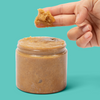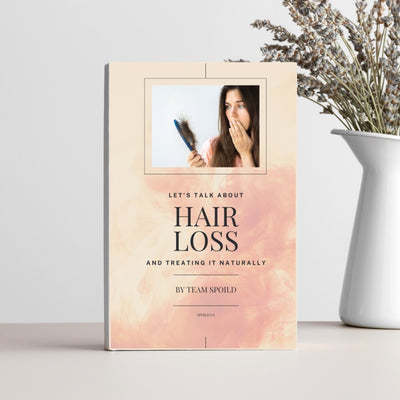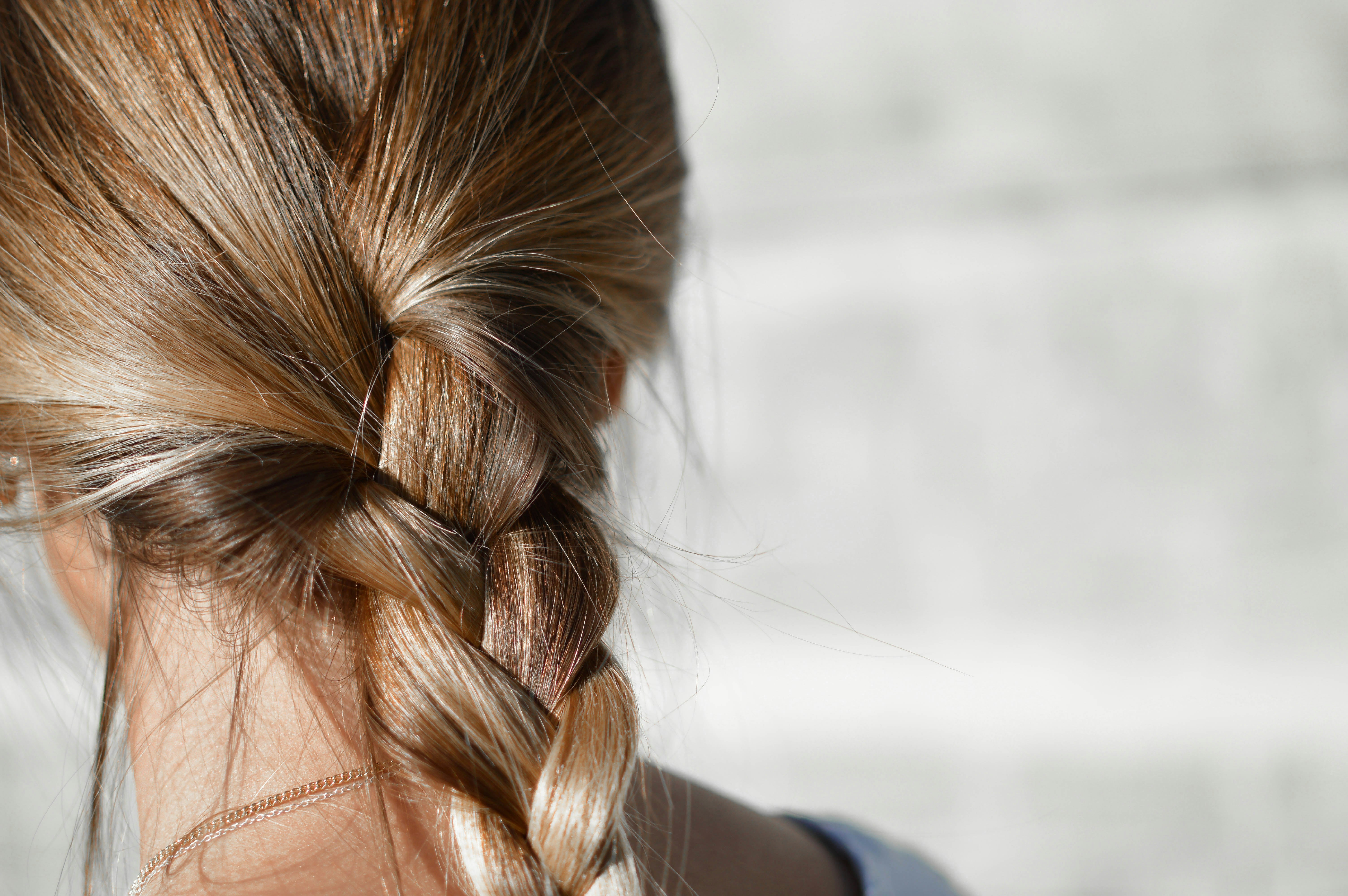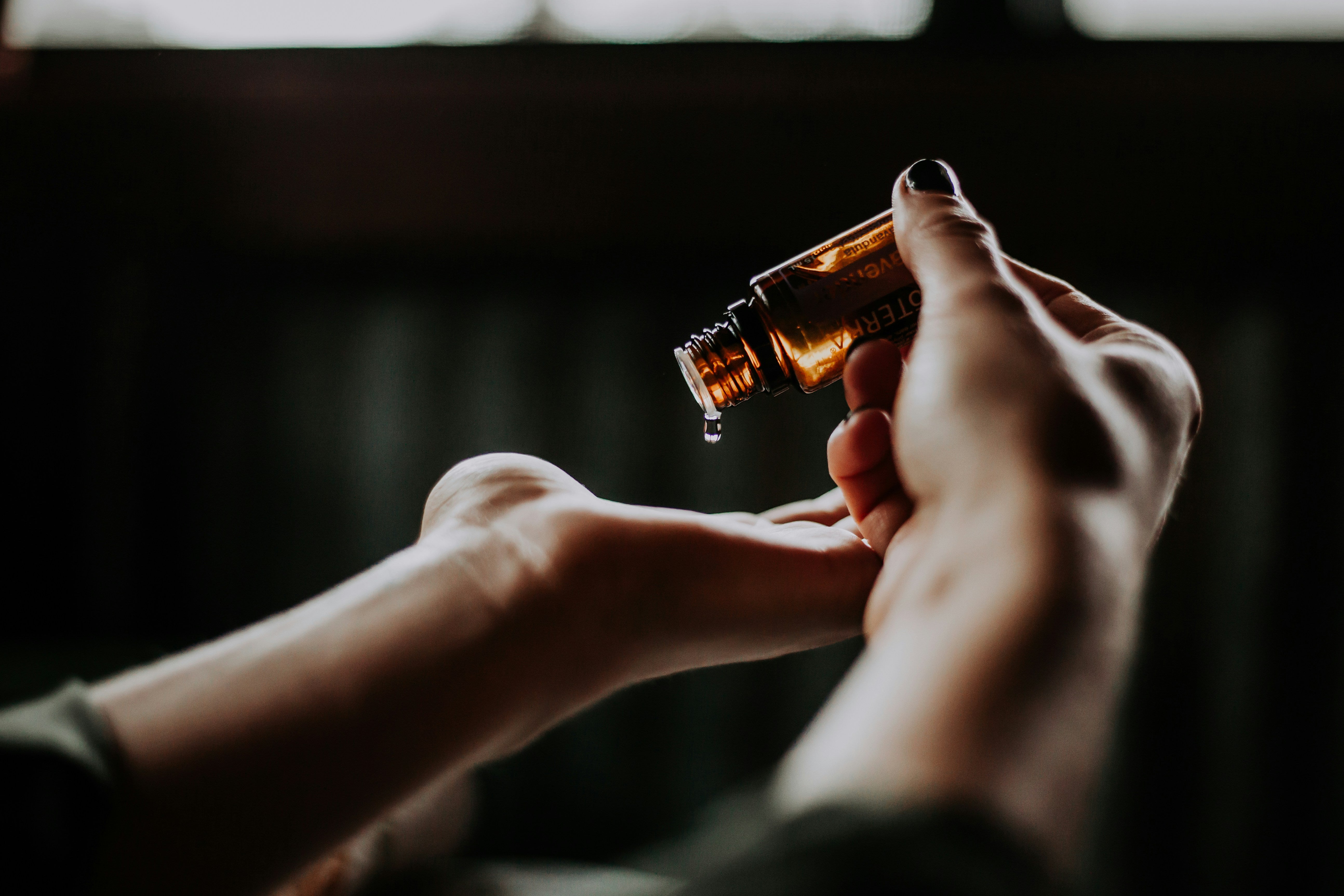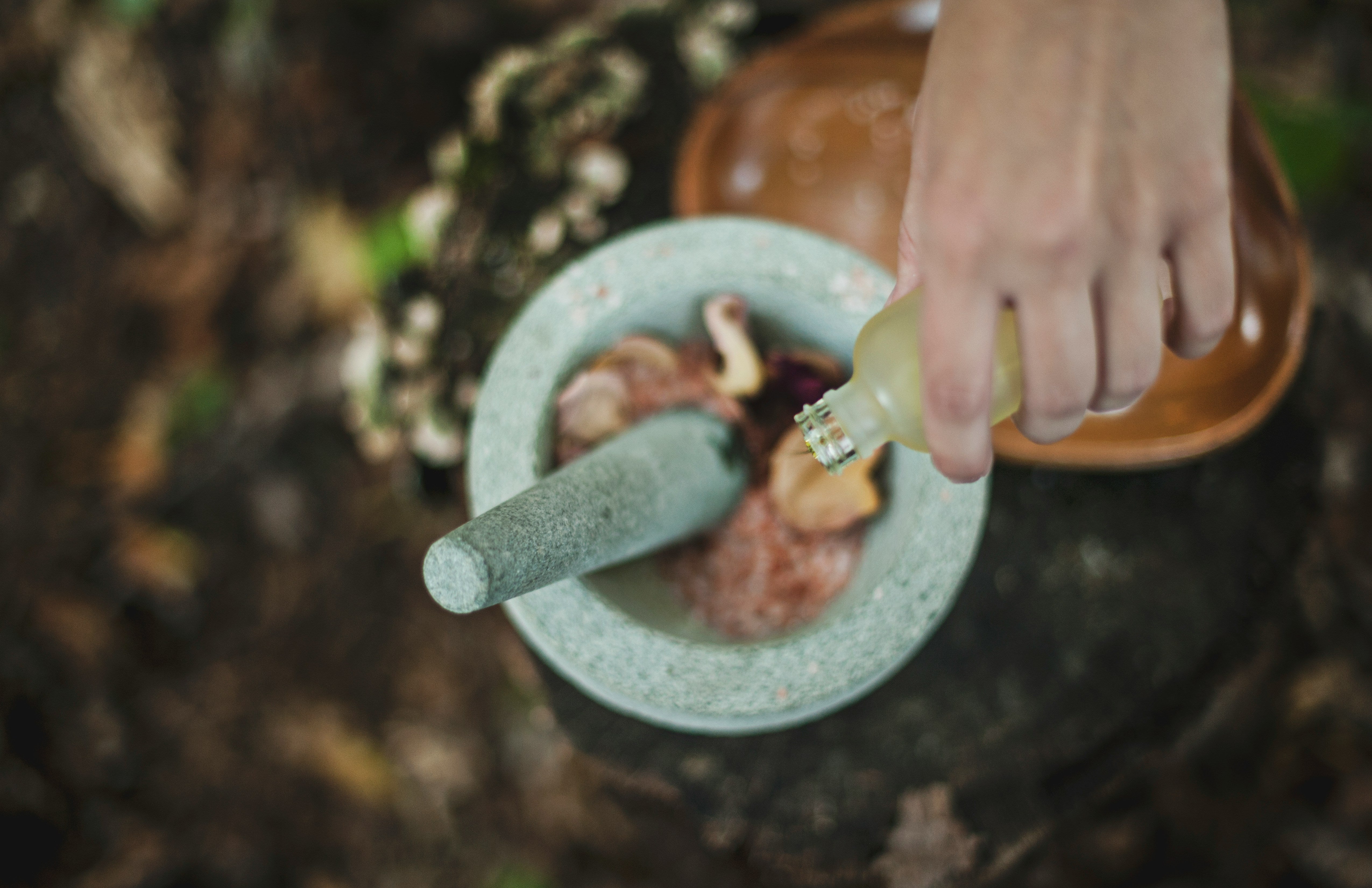Ojon Oil vs Batana Oil: Is Ojon Oil the Same as Batana Oil?

Issues like thinning hair, dry and brittle ends, or hair loss can take a serious toll on your self-esteem, but there are plenty of treatments out there that can make a real difference, and many are natural!
Today, we’ll look at two different oils for hair health and growth: ojon oil vs batana oil. Both hailed for their restorative properties, these oils improve hair health, enhance shine, and even nourish the skin. But is one better than the other, and can you combine them?
In this article, we’ll explain why 100% pure batana oil is a more effective hair treatment compared to its more processed, refined cousin - ojon oil. At SPOILD, we believe natural is always best, which is why our batana oil is responsibly sourced straight from the forests of Honduras.
If you want to give your hair the absolute best, join our 40,000 happy customers and get your SPOILD batana oil today!
Is Ojon Oil the Same as Batana Oil?
First of all, is ojon oil the same as batana oil? A lot of people think so, and their names are often used interchangeably, but these are actually two different oils. The confusion comes because they’re both sourced from the nuts of the Elaeis oleifera palm tree, which is native to Central and South America.
The two oils are nearly identical in composition and appearance, but there are differences in their extraction methods, traditional uses, and the communities that produce them. Let’s take a look at both oils separately before we start to compare ojon oil vs batana oil.
What is Batana Oil?
Batana oil is a rich, amber-colored oil extracted from the nuts of the Elaeis oleifera palm tree. It’s known for its thick, buttery texture and distinct aroma (what does batana oil smell like? It’s rich and earthy), and it has been a treasured natural remedy for centuries.
In terms of batana oil origin, it’s produced in the La Mosquitia region of Honduras, where it is handcrafted by the indigenous Miskito people, who have learned how to make batana oil using generations-old traditional methods to maximize the oil’s nourishing and restorative properties.
The Miskito people, often referred to as the “People of Beautiful Hair,” have long used batana oil for hair growth, to reverse hair thinning, and to condition and repair damaged hair. Its high concentration of essential fatty acids, antioxidants, and vitamin E makes it a powerful treatment for dry or damaged hair.
Batana beard oil is also popular, and many people use batana oil for alopecia. Beyond its hair care uses, batana oil is also used to soothe and moisturize dry skin, reduce the appearance of scars, and restore the skin’s natural radiance.
What is Ojon Oil?
Ojon oil is derived from the same nuts as batana oil. The name "Ojon" was popularized by a Canadian hair care brand that brought this oil into the global spotlight, promoting it as a high-end ingredient for restoring hair health.
Known for its thick, velvety texture and warm, nutty scent, ojon oil is packed with essential fatty acids, antioxidants, and lipids that help to moisturize and strengthen hair, making it smoother, shinier, and more resilient.
As the commercial demand for this oil grew, it became more associated with high-end hair care products marketed toward consumers looking for premium solutions to hair damage and dryness. Ultimately, Ojon oil represents a modern adaptation of an ancient beauty secret.
Ojon Oil vs Batana Oil: Key Differences to Consider
We’ve explained that ojon oil and batana oil come from the same nuts, but what are the differences between ojon oil vs batana oil? Let’s take a look at why these two oils aren’t the same.
Source and Extraction
The biggest difference between ojon oil and batana oil is rooted in where they are produced and how they are extracted. Batana oil is traditionally handcrafted in the La Mosquitia region of Honduras by the indigenous Miskito people.
The process involves roasting the palm nuts, then manually grinding and boiling them to extract the rich, amber-colored oil. This labor-intensive, small-scale production results in an unrefined product that retains its natural nutrients.
Ojon oil is extracted from the same nuts, but the process is typically more refined and industrialized to meet larger-scale demand. This can sometimes affect the oil’s texture, color, and nutrient density, making it slightly different from its more traditional counterpart, batana oil.
Nutrient Profiles
Is ojon oil the same as batana oil, in terms of nutrient profiles? While both oils are nutrient-rich and offer similar benefits for hair and skin, there may be slight differences in their nutrient profiles due to different extraction methods.
Batana oil, being less processed, tends to have a higher concentration of essential fatty acids, including oleic and linoleic acids, as well as antioxidants like vitamin E. These components work together to deeply condition hair, stimulate growth, and repair damage.
Ojon oil, being more refined, may have a slightly altered nutrient profile. It still contains the vital lipids and fatty acids needed for moisturizing and strengthening hair, but the refining process can reduce some of the antioxidant content, making it less effective for intensive hair repair and scalp health.
Texture and Application
Batana oil is known for its thick, buttery texture. It is slightly heavier than ojon oil, making it ideal for coarse, dry, or severely damaged hair. Because of its rich texture, batana oil works well as a deep-conditioning treatment or as an overnight hair mask, but can be heavy if you have fine hair.
Ojon oil has a smoother, lighter texture, which makes it easier to apply and rinse out. It can be more suitable for anyone with finer hair who wants to incorporate a nourishing oil into their routine without weighing down their hair.
Which is Better for Your Haircare Regimen?
So, when it comes to ojon oil vs batana oil, which is better? To help you decide, let’s break down which oil works best based on your hair type and specific hair issues you might be dealing with.
Choosing Based on Hair Type
If you have thick, coarse, or curly hair, batana oil is almost always the better option due to its heavier texture and high nutrient density. Its buttery texture makes it ideal for deep-conditioning treatments, taming frizz, and locking in moisture, providing extra nourishment for hair that needs more hydration and strength.
For medium hair, batana oil is generally the best choice once more. Unless your hair is very fine, it shouldn’t weigh it down or leave it feeling too greasy - you can still use it daily, and the fact that it’s more natural than ojon oil means that each treatment brings more benefits to your hair.
If you have extremely fine hair that’s already prone to oiliness, you may find batana oil too heavy, and may want to try ojon oil instead. However, you might experience the same issues with ojon oil, as you’re still adding an oil to your hair and scalp.
Targeting Specific Hair Concerns
If your main concerns are severe hair damage, split ends, or hair thinning, choose batana oil. It provides more intensive repair due to its higher concentration of essential fatty acids and antioxidants. It penetrates deeply into the hair shaft, making it effective for restoring severely damaged or chemically treated hair.
If you have fine hair and don’t need the deep healing properties of batana oil, you can try ojon oil if you’d prefer. It’s still hydrating, but your hair won’t be getting the full nourishing benefits that come with batana oil.
Why Batana Oil is the More Well-Rounded, Versatile Choice
While both oils can support healthy hair, batana oil comes out on top. Its rich nutrient profile, thicker consistency, and natural, unprocessed extraction method make it a powerhouse for hair, scalp, and skincare.
Batana oil can be used as a scalp treatment to stimulate hair growth and reduce dandruff - all while moisturizing and strengthening your hair. Plus, its unrefined nature preserves its vitamins and minerals, making it the perfect multi-use product for dry skin, rough patches, and even scar treatment.
Not only is it ultra-versatile, but it’s also sustainably produced in small batches using traditional methods. Batana oil is a more holistic choice if you want a natural, multipurpose beauty product that will work wonders on your hair and scalp.
Should You Try to Create Your Own Ojon Batana Oil for the Best of Both Worlds?
If you can’t choose between ojon oil vs batana oil, are there any benefits to using both? Let’s take a look at combining ojon and batana oils, and whether this is a good idea for your hair.
Benefits of Combining the Two Oils
There are definitely some benefits of combining ojon oil and batana oil, especially if you have fine hair. You can unlock the rich, nutrient-dense properties of batana oil, while softening it with the lighter, more refined texture of ojon oil, making the blend easier to apply.
A blend of ojon and batana oils brings deep moisturizing and rejuvenating properties to your hair, while still being light enough to use regularly without your hair feeling heavy or greasy. Together, these two oils create a product that enhances hair strength, growth, elasticity, and overall health.
Are There Any Risks to Be Aware of?
There aren’t really any risks or side effects of batana oil or ojon oil, as long as you’re using pure versions of each oil, without unnecessary or potentially harmful additives. If your skin tends to be on the sensitive side, try using a tiny amount of your oil mixture on a small patch of skin first, before applying it to your whole head.
How to Use the Combination
It may take you a while to get the perfect ratio for your hair, so play around with small quantities of different combinations of the two oils. In terms of how to use batana oil with ojon oil, melt a small amount in your fingers and massage it into your scalp, then through the lengths of your hair.
Leave it on for 20 minutes, then wash your hair normally. For a deep-conditioning treatment, you can leave the oil blend in your hair overnight before washing it out thoroughly. You can also use the blend as a daily leave-in by just rubbing it into the ends of your hair to combat frizz and add shine.
In terms of how often to use batana oil for hair growth, we recommend daily, consistent treatments for best results. And if you’re wondering how long for batana oil to work, many of our customers see amazing progress in just a few weeks!
Get the Best Batana Oil Today at Spoild!
At SPOILD, our 100% pure batana oil is just how nature intended it. We source our oil sustainably from Honduras, where it’s been harvested and used for thousands of years. We don’t use any additives or chemicals, just the natural properties of this incredible, powerful oil.
When you get your batana oil from SPOILD, you can rest assured that it’s the real deal. Place your order today and we’ll have it shipped to your doorstep in as little as two days - we don’t want to leave you hanging when it comes to hair care!
Bringing Our Ojon Oil vs Batana Oil Comparison to a Close
Ojon oil and Batana oil share a common heritage, originating from the same palm nut and offering remarkable benefits for hair health. However, they differ significantly in terms of extraction, nutrient density, texture, and overall use.
Batana oil, being more natural, is packed full of nutrients to stimulate hair growth, strengthen your strands, and tame frizz. It’s the ultimate oil for nourishment and hydration, having an instant impact on your hair health and shine from the very first application.
At SPOILD, we have premium batana oil for stronger, healthier, more beautiful hair. Whether you choose to combine it with ojon oil or use it alone, it won’t take you long to see why 40,000 people trust SPOILD with their hair!
Get your batana oil today to see the incredible difference it makes, and learn more in our other comparison guides: batana oil vs rosemary oil and batana oil vs castor oil.
